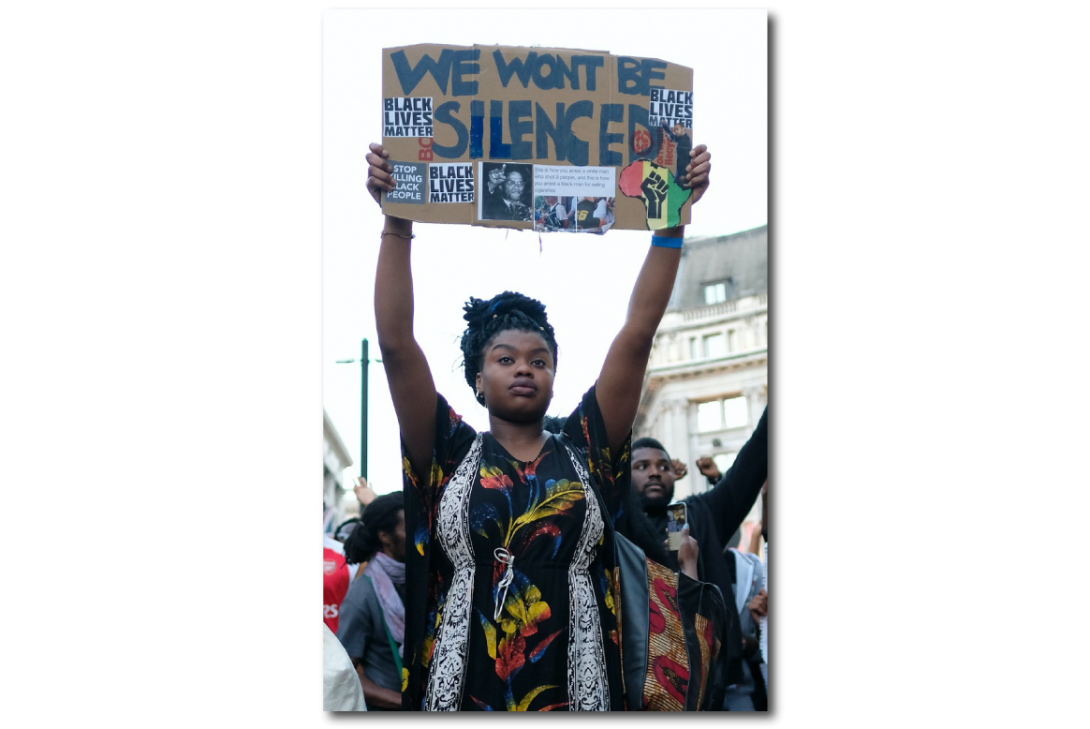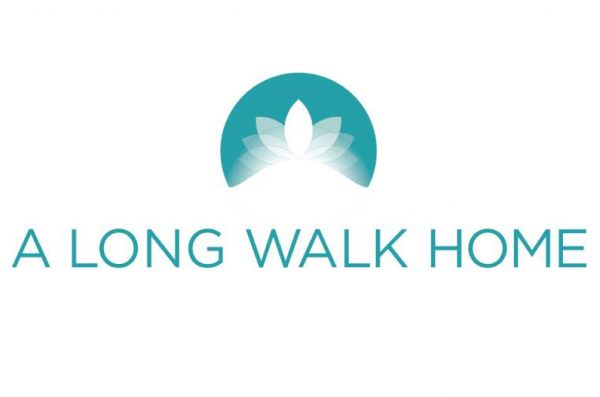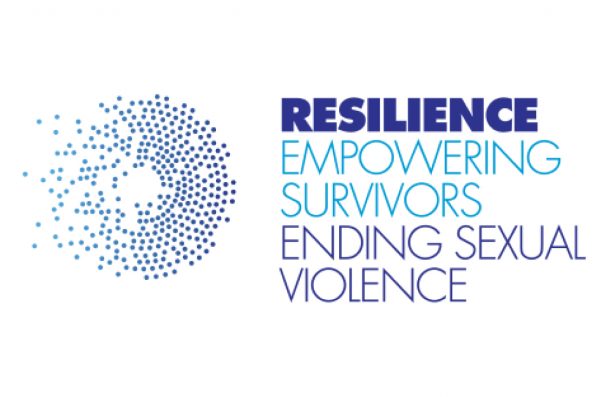Sexual Violence against Black Women
Domestic Violence Heading link
Black women’ s experiences with sexual violence is framed by a long history of objetification and exploitation of Black women’s body. From slavery to present configuration of the U.S. society, dominant discourses portray Black women as promiscuous, insatiable, and provocative. Co-existing discourses also position Black women as intrinsically strong, capable of protecting themselves from predators, and thus, untouchable by harm unless they allow harm to be inflicted on them. Together, these discourses position Black women as “sexually available, “unrapable”, and open to violence in the contemporary moment” (Yézou, 2019). They also serve to justify sexual violence perpetuated against Black women, minimize its seriouness, and hinder Black women’s access to protection (Collins, 2006; Morrison, 1992).
Derogatory portraits of Black women and their sexuality in popular media play a key role in normalizing their objectification and sexual exploitation in everyday life. The continued and systematic display of these portraits negatively impacts their opportunities to participate in society, violates human and sexual rights since they inflict with Black women’s right to”security of person” and their freedom from “derogatory treatment”, and hinders the empowerment of girls and women (1995 Beijing Declaration and Platform for Action; Bernard, 2016). Research data presented below show that sexual violence against Black girl and women is pervassive at both the interpersonal and structural levels.
Infographic with text Heading link
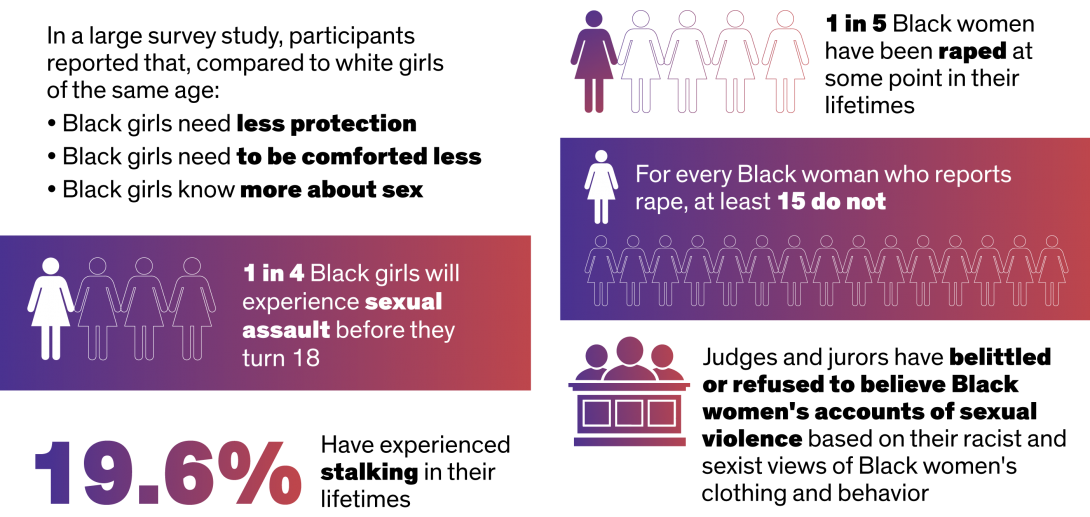
In a large survey study, participants reported that, compared to white girls in the same age: Black girls need less protection Black girls need to be comforted less Black girls know more about sex; 1 in 4 Black girls will experience sexual assault before they turn 18; 19.6% have experienced stalking in their lifetimes; 1 in 5 Black women has been raped at some point in their lifetimes; for every Black woman who reports rape at least 15 do not; Judges and jurors have belittled or refused to believe on Black women’s accounts of sexual violence based on their racist and sexist views of Black women’s clothing and behavior
Black women has always resisted sexual violence. From slavery to freedom, and despite not being protected by the US legal system, they defended themselves against abusive masters and campaigned against their sexual exploitation (When Black women reclaimed their bodies, 2018). Today, Black women continue to speak up, fight for sexual justice, and the reclaiming of their bodies and sexuality. They are leading movements to end sexual violence as well as are actively engaged in using popular media itself to challenge misconceptions of their experiences with sexual violence, share their stories, as well as name the failure of the state and other organizations to protect them.
The resources listed below features materials to help you learn more about sexual violence against Black women as well as organizations that are doing important work in supporting survivors.
Learn more Heading link
No! The rape documentary
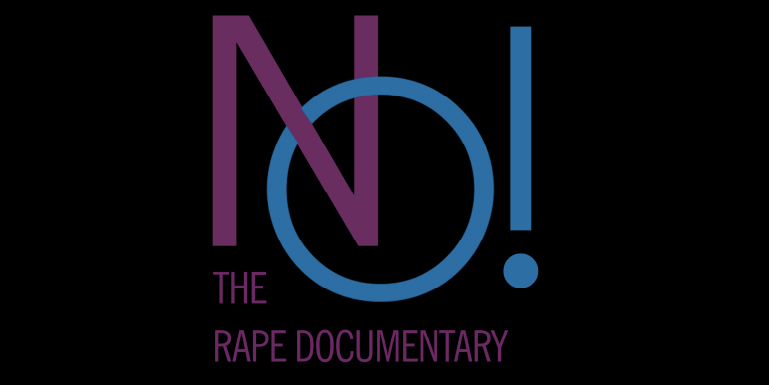
No! The rape documentary by Aishah Shahidah Simmons (2006): drawing from first-person accounts, research, spiritual and cultural work of Black people in the U.S., this film explores the violence of rape and other forms of sexual assaults committed against Black girls and women by men. Providing tools to understand theories and social configurations that perpetuate sexual violence, No! encourages viewers to commit themselves to disrupt all forms of sexual violence in holistic justice centered ways.
I may destroy you
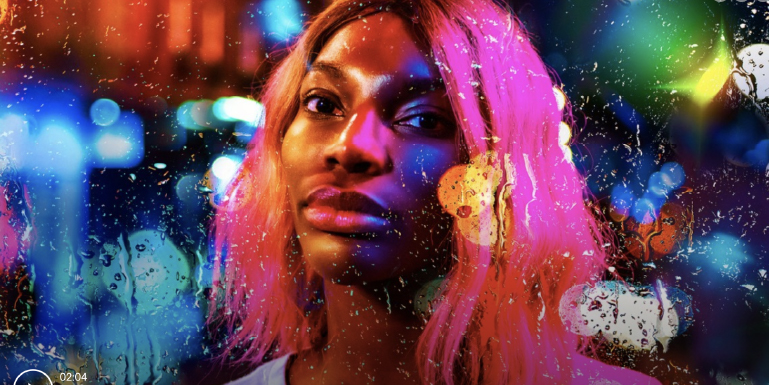
I may destroy you by Michaela Coel (2020): a TV series that tells the stories of experiences of sexual violence and healing of three African millenials living in the United Kingdom. This series highlights the nuances of sexual violence as well as the complexities of negotiating gender, race, sexual orietation, and class in modern UK society
Surviving R. Kelly

Surviving R. Kelly by dream hampton (2019): a two parts docuseries that centers the voices and experiences of women who were sexually and mentally abused by R. Kelly. The docuseries also brings to the forefront systems and power dynamics that enabled Kelly to perpetuate violence against Black girls and women while still thriving in the music industry.
Borders of the body: Black women, sexual assault, and citizenship
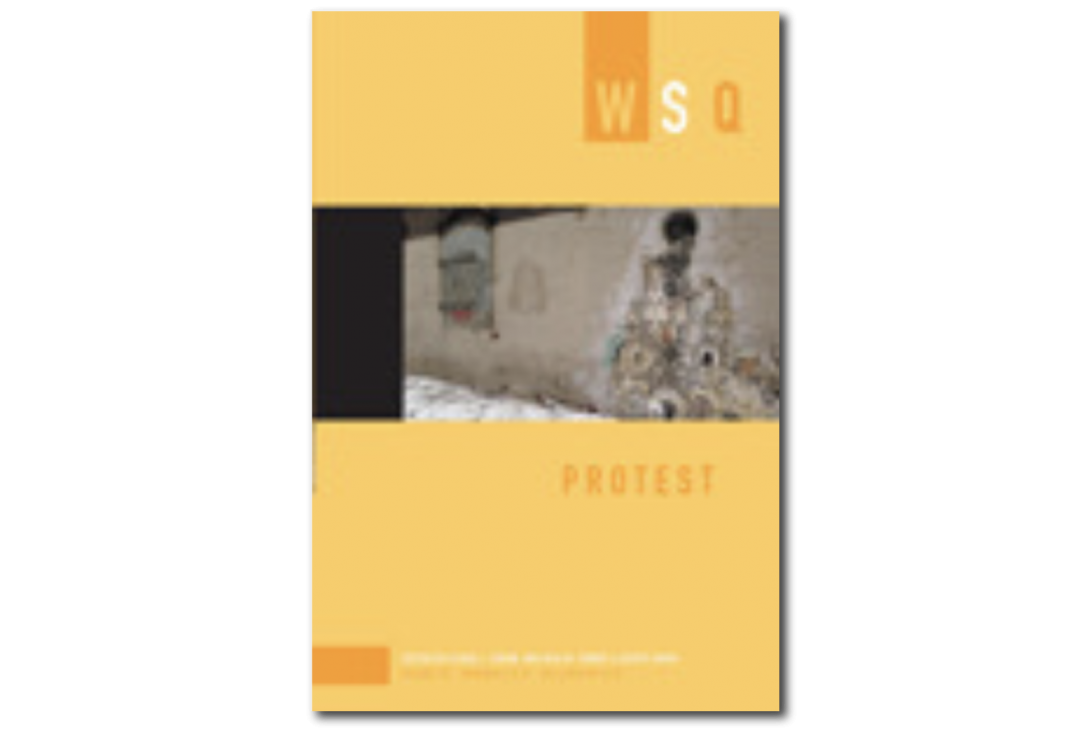
Borders of the body: Black women, sexual assault, and citizenship by Toni Irving.
Since 1972 WSQ has been an interdisciplinary forum for the exchange of emerging perspectives on women, gender, and sexuality. Its thematic, special issues combine psychoanalytic, legal, queer, cultural, technological, and historical work to present the most exciting new scholarship on ideas that engage popular and academic readers alike.
At the Dark End of the Street
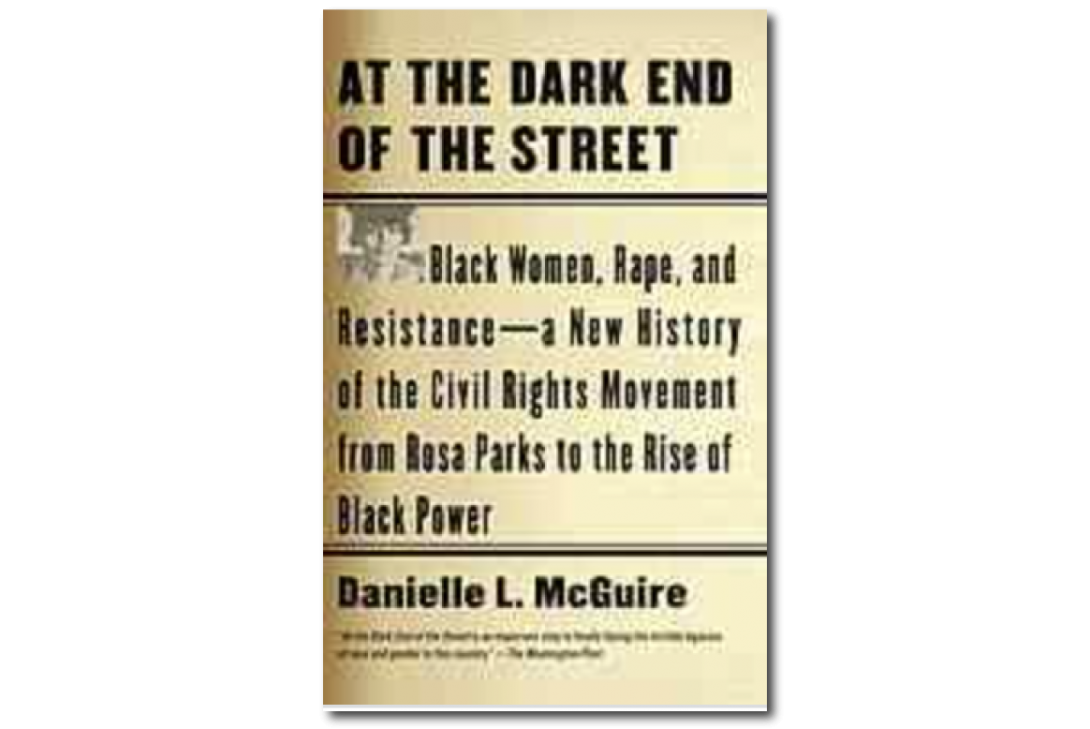
At the dark end of the street by Danielle L McGuire explores history of sexual abuse and rape of Black women in the 20th century as well as Black women’s resistance and leadership role in mobilizing against sexual violence. McGuire tells the story of Recy Taylor, a Black woman who had been raped by seven white men in Abbeville, Alabama and Rosa Parks leadership in the Alabama Committee for Equal Justice for Taylor. The books also highlights the connections between Black women mobilization against sexual assault in the South and the Civil Rights Movement and presents a critical reading of the ways in which Rosa Parks’ leadership–along with the contribution of other women– has been diminished and or erased.
